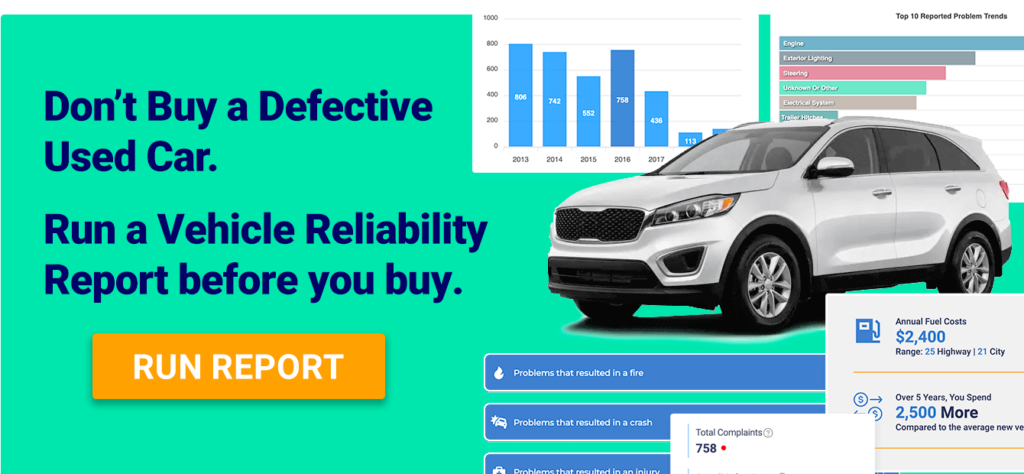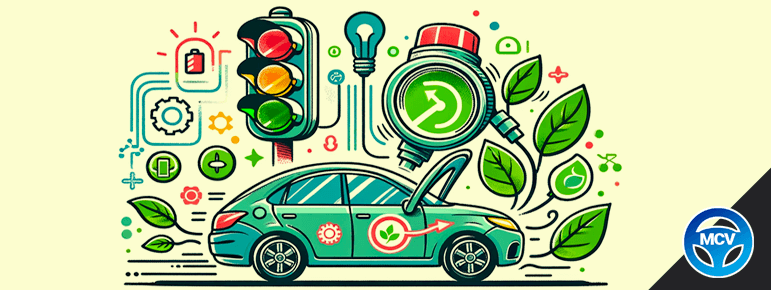Key Takeaways
- Auto Start-Stop Engine-Friendly: Designed with durable components to withstand frequent starts and stops, not causing extra wear.
- Battery Optimized: Equipped with advanced batteries and charging systems to support the technology without reducing battery life.
- Significant Fuel Savings: Studies show that auto start-stop can improve fuel economy by over 8% in heavy traffic.
Are you worried that the fancy auto start-stop feature in your car might be secretly wrecking your engine? You’re not alone.
Lots of drivers hear rumors that this technology, designed to save gas and cut exhaust fumes, could actually do more harm than good. But what’s the real story?
Believe it or not, auto start-stop systems are generally friendly to both your vehicle and the environment.
Here’s a fact to ease your mind: research shows start-stop technology won’t chew through your engine’s life. So why does this myth persist?
In this article, we’ll crack open the case and debunk those pesky myths one by one.
Is Auto Start-Stop Bad for Your Engine: Debunking Common Myths
Let’s set the record straight and sift through the fiction surrounding Auto Start-Stop technology. You might be surprised by what’s fact versus common misconception when it comes to this innovative system’s impact on your vehicle.
Myth #1: Auto Start-Stop uses more fuel
Some people believe auto start-stop technology wastes fuel. They think starting the engine again and again uses more gas than just keeping it running. But this simply isn’t true!
The truth is, this smart system saves fuel.
Start-stop shuts off your car’s engine when you stop at red lights or in traffic jams. It quickly restarts when you’re ready to move. This cuts down on the amount of time your engine idles and burns gas for no reason.
In fact, a study by the Society of Automotive Engineers found that using start-stop can improve a car’s fuel economy by over eight percent in heavy traffic.
So really, using less fuel while waiting is one of its big benefits!

Myth #2: Auto Start-Stop damages your engine
I’ve frequently heard from friends concerns about auto start-stop technology potentially causing harm to their engines. But the truth is different. Car makers design engines to handle the start-stop action well.
Modern cars use special parts like enhanced starter motors and batteries that are built for frequent starts and stops.
In fact, engine bearings and ring gears are designed with stronger materials to help reduce wear.
Engine oil plays a big role, too. It keeps engine parts moving smoothly under stop-start conditions. Start-stop systems don’t make your engine work harder than normal driving does.
Next, let’s explore how this tech affects your car battery life.
Myth #3: Auto Start-Stop wears out your battery faster
Auto Start-Stop technology may seem tough on your battery, but it’s not the case. Batteries in these systems are built to handle the frequent stopping and starting of the engine. They’re more durable than regular car batteries.
Fact is, during the the auto stop phases, the battery needs to continue to supply the vehicle with energy.
Car makers often use an enhanced flooded battery or EFB with Auto start-stop vehicles. These batteries cope better with the higher demand.
The system also includes a smart alternator that charges during braking and coasting. This reduces strain on the battery while keeping it charged up for the next engine start.
So, your vehicle’s battery won’t wear out faster because of start-stop technology. Instead, it gets support from advanced components tailored to its needs.
Myth #4: Auto Start-Stop causes more pollution
Many people think auto start-stop technology makes more pollution. This is not true. The system cuts down on exhaust gas when the car stops, like at red lights.
Cars with this tech generate less carbon dioxide (CO2) and other pollutants into the air. And it helps keep our cities cleaner and protects the environment.
Engineers design these systems to reduce idle time. Less idling means fewer emissions overall. Real-world testing shows that start-stop can improve air quality.
These systems are part of efforts to meet strict fuel efficiency standards, reducing vehicle emissions in the process.
Next, let’s explore how this technology helps our environment.
Environmental benefits of auto start-stop
Auto start-stop technology helps cars use less fuel and produce fewer emissions. Each time a car stops at a light or in traffic, the engine turns off. This saves gas and cuts down on CO2 emissions.
Less idling means less exhaust gas is released into our air. Over time, this can lead to cleaner air and a healthier environment.
Cars with this feature contribute to better fuel economy overall. They are part of efforts to meet stricter emission standards like Euro 5. Using auto start-stop also means engines don’t have to run as much when they’re not moving.
This reduces the total amount of harmful gases that vehicles emit during their lifetime.
Why is Engine Idling Harmful?
Simply put, engine idling wastes gas and money. Cars use fuel even when they stand still with the engine running.
This lowers your car’s miles per gallon, costing you more when you fill up. It also pumps needless CO2 into the air.
Too much carbon dioxide is bad for our planet; it’s a big cause of climate change.
Idling engines aren’t working efficiently either. They don’t get hot enough to burn off extra gases well, so more pollution goes out the tailpipe. Sitting idle can increase wear on engine components over time too, like exhaust systems and spark plugs.
In crowded places, traffic congestion from lots of idling cars makes air quality worse for everyone nearby.
Auto Start-Stop FAQs
What is auto start-stop technology in cars?
Auto start-stop technology automatically turns off the car’s engine when it stops, like at red lights, to save fuel and reduce exhaust gases.
Does using stop-start systems harm my engine?
No, stop-start systems do not harm engines; they’re designed with features like improved lubrication to protect the engine during repeated starting.
Can I still get good gas mileage with start-stop technology in traffic?
Yes, you can get better gas mileage because the system reduces fuel use by turning off the engine during idle times in traffic.
Do all hybrid cars have auto start-stop systems?
Most hybrid cars have this technology as part of their efficient design, which includes battery power to assist the internal combustion engine.
Will my air conditioning work when the engine is off due to auto start-stop tech?
Yes, modern HVAC systems in cars are designed to keep running smoothly even when your car’s engine is turned off by this feature.
Is there special maintenance needed for vehicles with the start /stop system?
Cars with this tech might need slightly different care for parts like batteries or starters that work harder but following service guidelines from manufacturers helps a lot.
How to permanently disable auto start/stop Chevy Silverado?
To permanently disable the auto start/stop feature in a Chevy Silverado, you may need to use a third-party device or software that can alter the vehicle’s computer settings. Note that modifying your vehicle’s software might void the warranty. Always check with a professional or the dealership for advice specific to your model year.
Why is my Jeep auto start/stop not working?
The auto start/stop feature may not work if the battery is low, the engine is not at operating temperature, or if the climate control system requires the engine to maintain cabin temperature. Also, if any fault codes are present in the system, it may disable the feature. Checking the vehicle’s diagnostic codes can help identify the issue.
Why is my Jeep Compass auto start/stop not working?
Similar to other Jeep models, the Compass’ auto start/stop may not work due to low battery charge, the engine not being at operating temperature, or the climate control system needing the engine on. Diagnostic codes should be checked to pinpoint the problem.
Why is my 2017 Ford Escape auto start/stop not working?
For the 2017 Ford Escape, the auto start/stop feature might not work due to issues such as a weak battery, the AC system running on high to cool or heat the cabin, or a requirement for the engine to run for emissions control. Check for any diagnostic trouble codes or consult with a Ford dealer for specific advice.
Why is my Ford auto start/stop not working?
General reasons why Ford’s auto start/stop feature may not work include a low battery charge, the engine not being fully warmed up, or the climate control settings. It’s also possible that the feature has been manually disabled via a button or menu setting in the vehicle.
How to turn off auto start/stop BMW X5 2023?
To turn off the auto start/stop feature in the 2023 BMW X5, look for a button with an “A” encircled by an arrow on the dashboard or console. Pressing this button will deactivate the feature for the current drive cycle. The setting may revert back to ‘on’ the next time you start the vehicle, depending on the model’s settings.
Why is my Jeep Gladiator auto start/stop not working?
The Jeep Gladiator’s auto start/stop feature might not work for similar reasons as other Jeep models: battery status, engine temperature, and climate control demands. Also, ensure that no aftermarket modifications have interfered with the system.
How to permanently turn off auto start/stop Mercedes?
Permanently disabling the auto start/stop in a Mercedes-Benz may require a visit to the dealership or a third-party solution that can modify the vehicle’s software settings. Be cautious as this might affect the vehicle’s warranty.
How to disable Hyundai auto start/stop?
Some Hyundai models allow you to disable the auto start/stop feature through a button on the dashboard, usually marked with an “A” inside a circular arrow. For a more permanent solution, consulting with a dealership or using third-party tools might be necessary.
Why is my Subaru auto start/stop not working?
For Subaru vehicles, the auto start/stop feature may not work if the battery is not fully charged, the engine or cabin has not reached the desired temperature, or specific driving conditions are not met. Checking the vehicle’s battery health and ensuring no diagnostic codes are present can help identify the issue.
Final Thoughts
Auto Start-Stop technology is a game-changer for both the environment and your wallet. By intelligently stopping the engine at times when your car is idle, it significantly reduces fuel consumption and emissions.
Truth is, concerns about increased wear on engines and batteries are unfounded. The technology uses specially designed components to ensure both last longer than in traditional vehicles.
Plus, the advanced design means your battery won’t leave you stranded after frequent starts and stops.
Have any questions or thoughts on this subject? Feel free to drop a comment below! 👇

Managing Editor
Christopher is an automotive technical writer. When he’s not at the local autocross event, he can often be found working on one of his cars. Specializes in automotive class action law, industry trends, and automotive maintenance. Email me direct, or learn more about us

